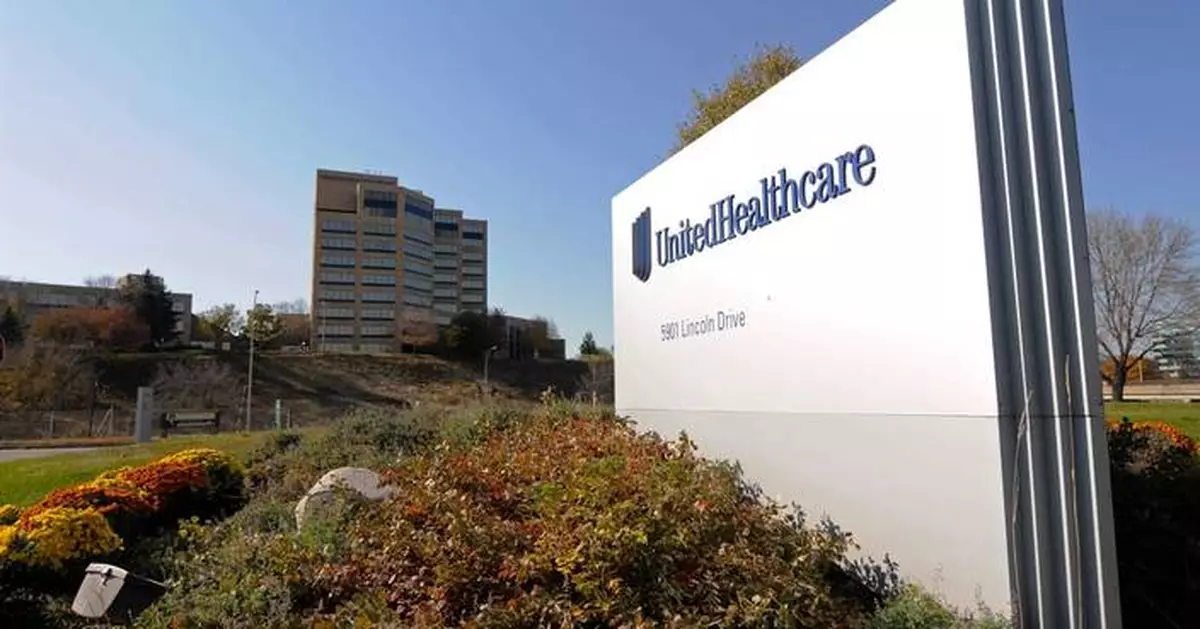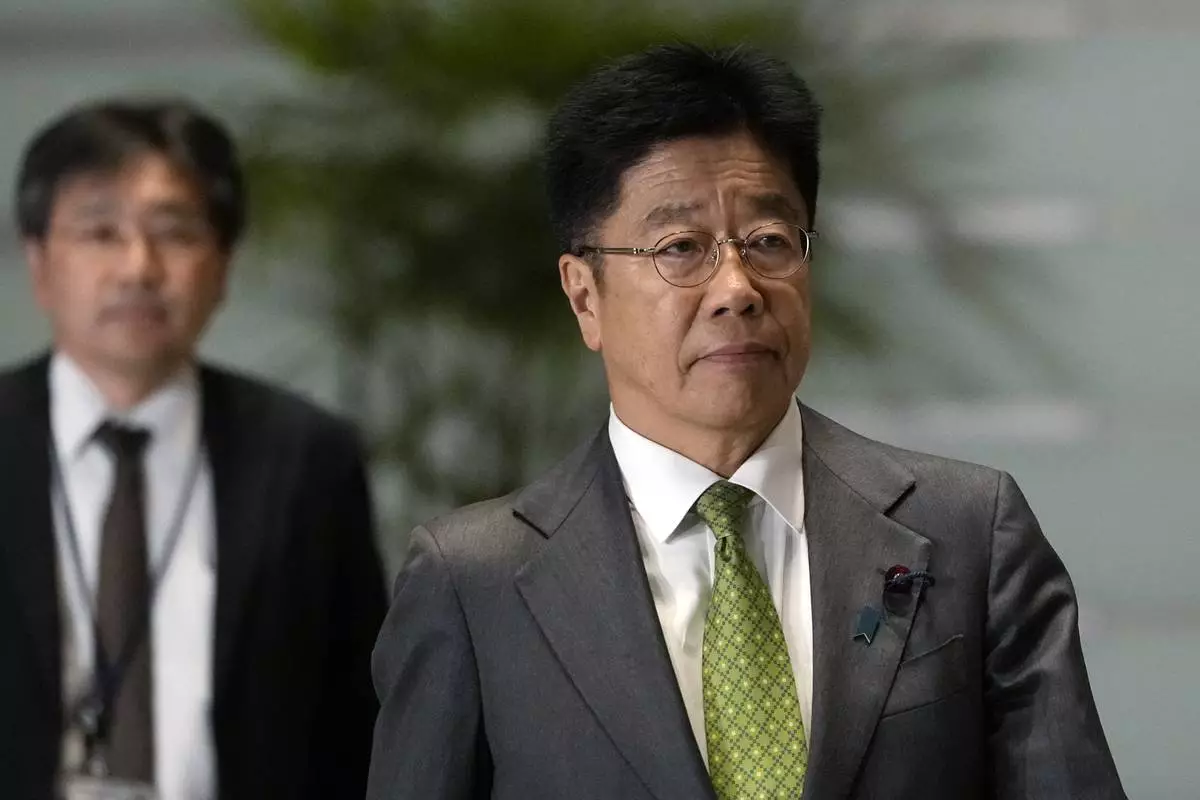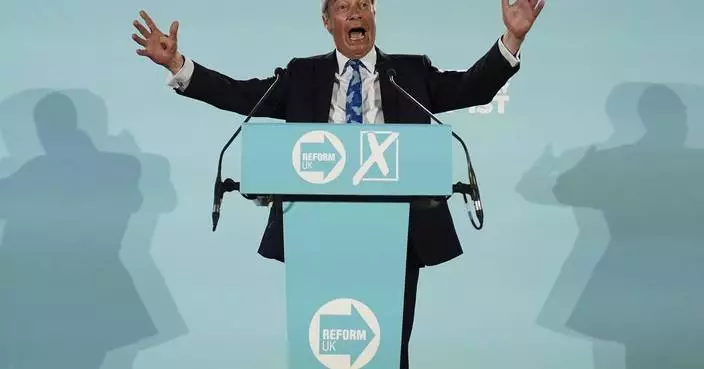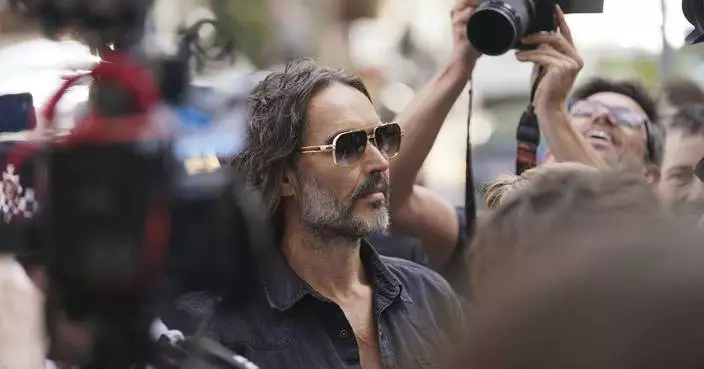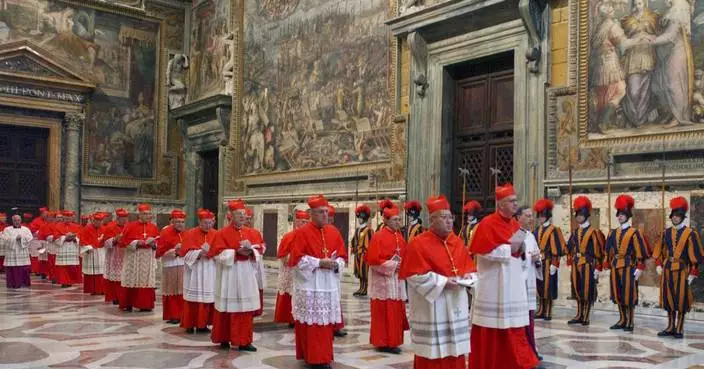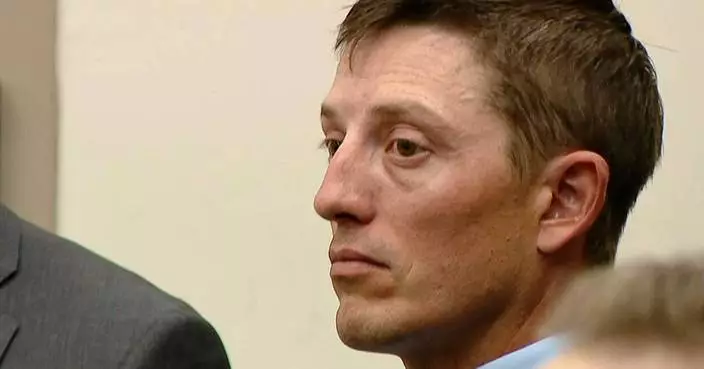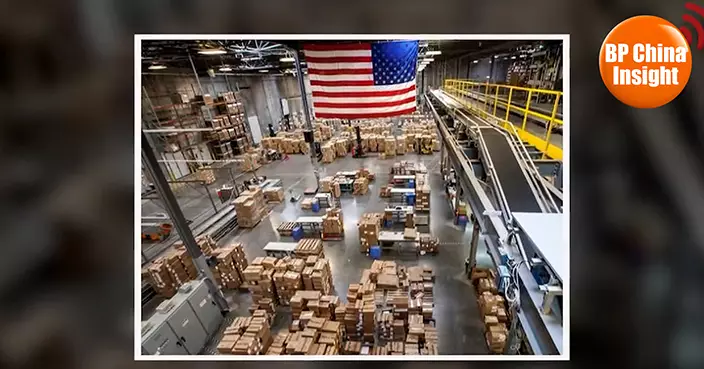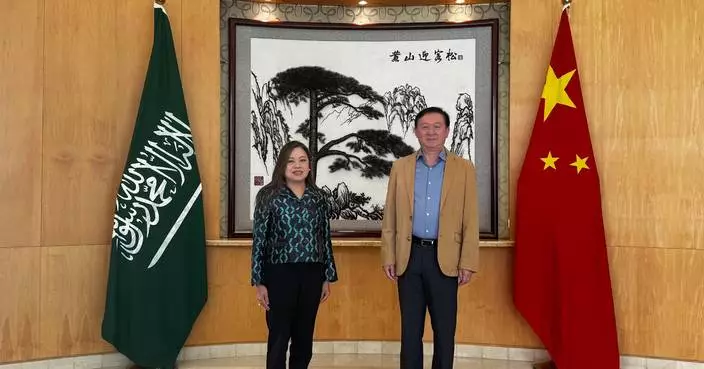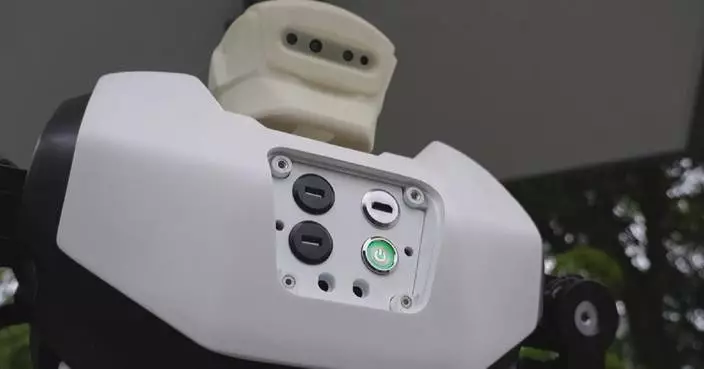MINNEAPOLIS (AP) — A man was arrested near UnitedHealthcare’s headquarters in Minnesota after threatening violence, months after the company's CEO was killed, authorities said Monday.
The man was spotted around 11 a.m. in a parking lot outside of the UnitedHealthcare corporate campus in the Minneapolis suburb of Minnetonka. City spokesman Andy Wittenborg said the man contacted the FBI's field office in Minneapolis once he arrived, and an FBI negotiator made contact with him by phone.
“While the investigation is still in its early stages, there is currently no indication that the individual had specific grievances against UnitedHealthcare,” Wittenborg said in a statement.
City police and the FBI coordinated their response and had steady contact with the man, successfully encouraging him to peacefully surrender to authorities after about an hour with no threat to the public, Wittenborg said. The man, who'd had previous contacts with Minnetonka police, had showed up at a security checkpoint where he was not supposed to be.
Wittenborg said the incident had nothing to do with the killing of UnitedHealthcare CEO Brian Thompson, who was shot to death in New York City on Dec. 4 as he was walking to an investor conference in midtown Manhattan. The man accused of killing him, Luigi Mangione, 26, pleaded not guilty in December to state murder and terror charges.
News helicopter video of the aftermath showed over a dozen law enforcement vehicles from multiple agencies at the scene, as well as an ambulance that was standing by. There were no reports of injuries.
The CEO’s killing and ensuing manhunt leading to Mangione’s arrest rattled the business community, with some health insurers hastily switching to remote work or online shareholder meetings. It also galvanized health insurance critics — some of whom rallied around Mangione as a stand-in for frustrations over coverage denials and hefty medical bills.
Surveillance video showed a masked gunman shooting Thompson from behind. Police say the words “delay,” “deny” and “depose” were scrawled on the ammunition, mimicking a phrase commonly used to describe insurer tactics to avoid paying claims.
Mangione also faces federal charges, and U.S. Attorney General Pam Bondi said earlier this month she has directed federal prosecutors to seek the death penalty.
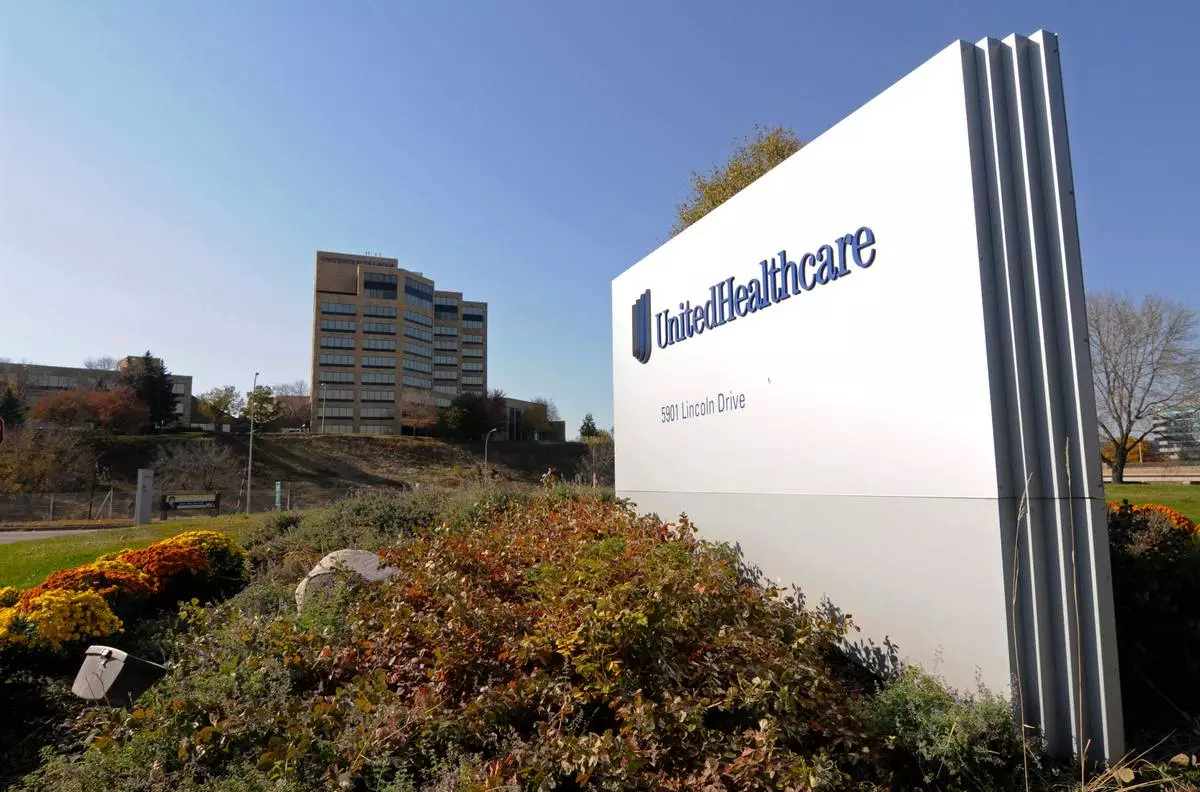
FILE - A view of the UnitedHealth Group Inc.'s campus is shown Oct. 16, 2012, in Minnetonka, Minn. (AP Photo/Jim Mone, File)


